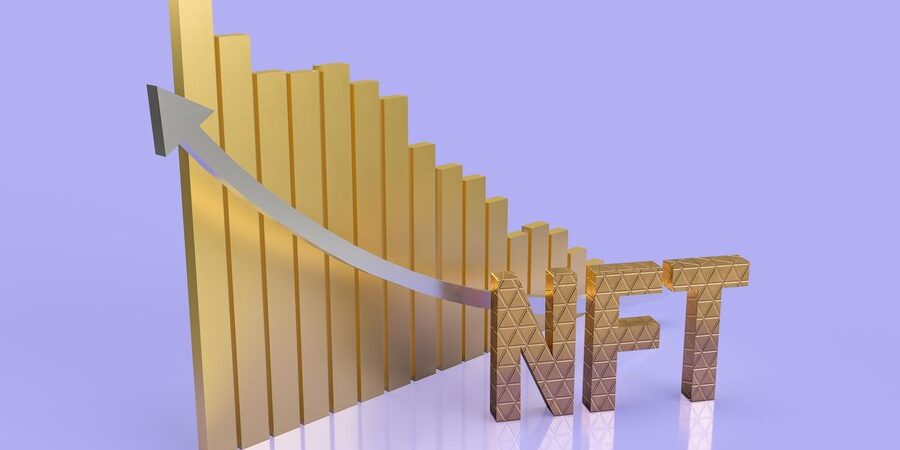The state of the global NFT ticketing in 2025 was estimated at $1.12 billion, and analysts foresee that it will skyrocket to 3.617 billion by 2034. This rocketing increase of 14.9 percent per annum is an indicator of radical change in the way we ought to think about access to events. NFT ticketing is not only a technological improvement but an entirely new way of connecting between the event organizers, fans, and the thrill of live entertainment.
The ticketing industry has suffered decades of fraud, scalping and negativity via lost revenue through secondary sales with traditional ticketing systems. Blockchain technology is however turning all that around. Significant happenings are already taking up this innovation, and in March 2025, a significant music festival in the UK will implement NFT tickets with the assistance of the SeatlabNFT on over 150,000 individuals.
What is NFT Ticketing?
NFT ticketing is based on blockchain technology to develop unique and verifiable digital tickets and is impossible to duplicate or fake. The tickets are non-fungible tokens (NFT) that are held in a blockchain network, and they offer a non-editable, permanent record of the ownership.
NFT tickets are unique mathematically unlike the traditional model of tickets that can be copied or sent forwarded, or even faked easily. The blockchain checks authenticity in real-time, this removes the guesswork and fraud, which costs the industry billions every year.
At that time, a person who buys an NFT ticket will get a digital token in a crypto wallet. This is their entry ticket and token of purchase and has all the required information on the event, and is also imposable to be replicated in any manner.
The Step-by-Step Guide of the NFT Ticketing Process
NFT ticketing begins when the organizers of the event develop smart contracts on a blockchain network. Such contracts establish the characteristics of tickets, prices to be paid, resale policies and other conditions.
Every ticket is minted and can be regarded as a NFT with particular metadata. This would feature event details, the location of the seats and any other extras or access privileges. The ticket is then disseminated in legitimate platforms or markets.
In cases where the audience desires to resell their tickets, the only way to do this is using accredited platforms. Smart contracts automatically draw a set of pre-selected rules, e.g.: setting a price ceiling, or royalty payments to organizers. This provides event creators with a continuous control of their ticket ecosystem.
The NFT can be recorded at the venue based on blockchain verifying tools. The system will verify the authenticity and who is in possession of the ticket at any one time and will only allow access to those entitled to access.
Benefits to Event Organizers Game-Changing
Full Control of the Secondary Markets
With programmable smart contracts, organizers of events would be able to be in unmatched control of reselling tickets. They are able to lay maximum resale prices, impose restrictions on transfers, or get royalties on each secondary trade. This removes the tremendous loss in revenue that was lost to illegal scalpers.
GET Protocol that offers ticketing services to more than 200 events per month across 121 countries allows the organizers to receive continuous royalty on secondary market sales. This establishes a viable revenue base which can persist well beyond the sale of the initial ticket.
In-Person, Fan Interaction and Statistics
NFT tickets will ensure that organizers have a solid relationship with the ticket holders. Compared to conventional systems, where tickets are forwarded using messaging applications, it is always possible to track the account associated with NFT.
The one-on-one connection enables an organizer to engage with real users, provide exclusive benefits, and create permanent communities. They are able to send the updates, special offers, or bonus material straight to the wallet of ticket holders.
Fraud Prevention and Security
With blockchain, it is practically impossible to counterfeit the tickets. The NFT will have cryptographic verification of authenticity that can not be duplicated. Security staff at events can easily check tickets without having to fear elaborate counterfeit tickets and duplicate entries.
Organizers can also detect abnormal patterns and possible security risks early enough because each blockchain record is transparent.
Life-Changing Benefits to the People
Guaranteed Authenticity
Whenever fans buy NFTs, they do not fear making wrong purchases such as counterfeit tickets. The block chain offers mathematical validity certifications which are irreproducible. This removes the fear and the financial gamble of buying the secondary market.
Safe Change of Ownership
In the case when those who got tickets, must sell it again, the whole process becomes 100% safe and transparent. The NFT will automatically move between different wallets, and the blockchain will have documentation of the process. The legitimate transfer can be proved by both parties.
Digital Memorabilia and Collectibles
NFT tickets can be used to add perceived value other than entry to an event. A lot of them can act as digital items or memorabilia that fans can preserve. Certain tickets give access to unique additions, paraphernalia, or advantages of later occasions.
In early 2021, artists such as Kings of Leon were discovering this idea using NFTs dubbed as the golden tickets to allow individuals lifetime front-row seats at concerts. This model has been transitioning to numerous entertainment industries by 2025….
Success Stories that Transform the Business Industry
The VIP Innovation at Coachella
In 2022, Coachella offered 10 lifetime passes in the form of NFTs, giving their owners an annual pass and other exclusive opportunities, such as VIP dinners or front row seats. In this experiment, it was shown that NFT ticketing would generate unique, long-term fan relationships.
The festival is still playing around with NFT to give VIP access, which indicates much larger-scale events are incorporating blockchain technology into their very fabric.
Fun Fact – FIFA Club World Cup 2025
FIFA introduced conversion of tickets to NFTs with the Club World Cup 2025, where fans could convert their digital ticket into non-fungible tokens. This is the acceptance of blockchain technology in the sport at its top levels.
Success of Independent Events
NFT ticketing solution also helps smaller events. Blockchain was deployed in a start up coding event in Berlin and the whole ticketing process was done on block chain with tokens distributed to spectators over a pristine wallet application. The low-priced system managed it all with no need of high-priced conventional ticketing agents.
Market realities and today challenges
User Education and Use User Adoption
Blockchain is complex and this means that users need to be educated heavily in order to gain mass adoption. Crypto wallets and NFT purchases remain a turn off to many potential attendees.
Nevertheless, this is a gap that platforms are working to close through the use of friendlier interfaces. Instead, there is a growing insistence on the experience being comfortable upon appearance, but offering blockchain advantages in the back end.
Environmental and Cost concerns
This may tend to affect the ticket prices and as well as discourage some customers because of the high transaction fees charged in the blockchain. Environmental awareness of energy-intensive blockchain networks is also something that environmentally friendly consumers are sensitive to.
But most platforms are mitigating these concerns via more efficient uses of blockchain networks such as Polygon to minimize cost and environmental impact: GET Protocol uses Polygon to achieve these goals.
Scalability Questions
Major events have to be done on a large scale and the ticketing systems used have to be able to transact such a large amount at the same time. Even though the blockchain technology keeps on getting better, there are doubts on how to deal with peak demand periods during big events.
Future Projections and Market Growth
The NFT ticketing market is gaining impressive traction with an estimated compound growth rate of 13.9%, by 2034. The most significant growth is in North America where there is well developed block chain infrastructure and regulatory clarity.
The main segments that drive adoption are sports events, music concerts, arts entertainment and conferences. These platforms have the technical capacity required to implement NFTs, and the secondary market has the biggest market share at the moment.
The leading actors are SeatLabNFT, GUTS Tickets, Wicket, Relic Tickets, TicketMint, and YellowHeart. These firms are growing fast and engaging in strategic alliances with big event providers.
Road Ahead What to Expect
The development of NFT ticketing technology will probably adopt another technology, such as IoT (including IoT devices) and artificial intelligence. Sensor and the smart badges would capture data of attendees on the blockchain and track their activity at the event, thus allowing a personalized experience.
The technology will also make possible loyalty schemes and exclusive access systems that can be used across periods and spaces covering several events and plants. The fans were able to develop digital libraries of their event history and gain access to higher levels of benefits.
Blockchain infrastructure is still new and user-experience infrastructures are in their early phases, but as these elements develop we will see how NFT ticketing becomes as ubiquitous and obvious as current digital tickets. The question is not whether this technology will make it, but how soon it will become the new standard.
The entertainment is at a crossroad. The NFT ticketing provides answers to old-time challenges and spawns whole new levels of fan interaction and revenue delivery. The people who are ready to use this technology as early event organizers and attendees are likely to derive the maximum benefit of its transformative potential.



